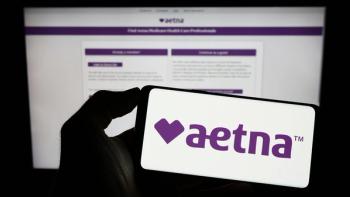
Study Finds 'Proactive' is Better than a 'Reactive' Approach for Reducing Toxicities with Certain Drugs for Blood Cancers
Cancer researchers are looking into new ways to prevent drug side effects before they start. Administration of a single pre-emptive dose of tocilizumab (Actemra) was associated with a significantly reduced chance of toxic side effects in people receiving certain immunotherapies in a new study published on January 17th in
Promising new immunotherapies for multiple myeloma and other cancers have emerged, including bispecific antibodies and CAR T-cell therapies, but they carry risks. These drugs commonly cause cytokine release syndrome (CRS) and immune effector cell-associated neurotoxicity syndrome (ICANS). One such drug that can cause CRS and ICANS is teclistamab (Tecvayli), a bispecific T-cell engager drug indicated for multiple myeloma in adults who’ve already tried multiple lines of treatment.
The current approach for managing these side effects involves starting treatment with small doses and closely monitoring patients in the hospital for symptoms. If symptoms arise, patients are treated with inflammation-reducing medications and supportive care, sometimes in the ICU. As immunotherapies become more common in cancer treatment, better prevention strategies are needed.
A team of researchers at the Sylvester Comprehensive Cancer Center at the University of Miami recently conducted a study aimed at exploring the effect of tocilizumab, given as a preventive dose, on the rate of CRS. Two of the study authors,
“All three FDA-approved bispecific antibodies for multiple myeloma recommend at least one period of inpatient monitoring, carry black box warnings, and have risk evaluation and mitigation strategy (REMS) program attempting to mitigate these toxicities,” Landgren told Managed Healthcare Executive.
For instance, he explained that with Tecvayli, “cytokine release syndrome (CRS) and neurotoxicity are reported at 72% and 14%, respectively. Per the current
Their study looked at the effect of giving a pre-emptive dose of a drug that has been used to treat CRS.
“In our study, 31 patients with multiple myeloma were treated with teclistamab,” Kowalski said. “One hour prior to the first step-up dose of teclistamab, we pre-medicated with the IL-6-receptor antagonist tocilizumab [Actemra].”
The study found that the rate of CRS was substantially lower in patients who received a single dose of tocilizumab compared to rates reported in the previous clinical trials. Specifically, the rate of CRS in patients who received prophylactic tocilizumab was 13%, whereas the rate reported in previous trials without prophylactic tocilizumab was 72%.
“We observed the rate of CRS to be as low as 13% for the entire duration of the step-up dosing window. All CRS events were Grade 1, and no patient required an additional dose of tocilizumab. There was no observed Grade 3 or higher CRS or neurotoxicity,” Kowalski explained. “One patient experienced a treatment delay due to neurotoxicity; no patients were delayed due to CRS.”
Their study, Kowalski said, shows that “the approach of using prophylactic, rather than reactive, tocilizumab (Actemra) has the potential to reduce the frequency and severity of immune toxicities associated with T cell-engaging therapies used to treat cancer patients.”
“Our experience with prophylactic tocilizumab at the Sylvester Myeloma Institute is an important step forward in making bispecific antibody therapies more user-friendly for outpatient use and less of a burden to our patients,” Landgren said.
Newsletter
Get the latest industry news, event updates, and more from Managed healthcare Executive.
























